The full course
The Ten Individual Mentor Coaching Sessions are an essential component of a comprehensive Mentor Coaching program, designed to provide personalized support and guidance for coaches seeking to enhance their skills and align with the ICF Core Competencies. These sessions are intentionally spread over an extended period, such as a minimum of three and a half months, allowing for a more effective learning cycle. This approach ensures you have ample time to receive valuable feedback from your Mentor Coach, reflect on your progress, and practice the newly acquired skills.
During the individual mentor coaching sessions, your Mentor Coach will focus on assessing your current competencies and identifying areas for improvement. Your Mentor Coach helps you develop the desired competencies or adapt to specific coaching situations by demonstrating and guiding you through the best techniques tailored to your needs.
The structure of these ten sessions fosters a strong mentor-mentee relationship, allowing for open communication, trust, and collaboration. This environment encourages you to engage in honest self-assessment, receive constructive feedback, and grow as a coach.
Throughout the mentor coaching sessions, your Mentor Coach will:
- Assess your current level of coaching competency.
- Identify areas that require improvement or enhancement.
- Share best practices and techniques to elevate your skills.
- Provide real-time feedback on your coaching sessions, observed or recorded.
- Offer guidance on how to better align your coaching practice with the ICF Core Competencies.
- Support you in applying the newly acquired skills and knowledge in real-life coaching situations.
- Encourage reflection, self-awareness, and continuous learning.
- Help you set specific goals and create an action plan for your professional development.
By participating in these ten individual mentor coaching sessions, you invest in your growth as a coach, ensuring that you continue to provide exceptional coaching services and profoundly impact your clients’ lives.
If you have graduated from a coaching training program and are aiming to obtain an ICF credential, you need to meet several key requirements. These requirements ensure that you have the necessary skills, knowledge, and experience to provide professional coaching services. They include:
- At least 125 hours of coach-specific training through an ACTP/Level 2, Level 1 or ACSTH program. Ensure that your program is approved by the ICF.
- A minimum of 10 hours of Mentor Coaching spread over at least three months. This mentor coaching must be documented on your online application, and your Mentor Coach must be a PCC or MCC in good standing.
- A minimum of 500 hours (440 paid*) of coaching experience with at least 25 clients following the start of your coach-specific training. At least 50 of these hours must occur within the 24 months** prior to submitting the application for the credential.
- Performance evaluation, which includes submitting two audio recordings and written transcripts of coaching sessions with your application.
- Completion of the ICF Credentialing Exam, which tests your understanding of the ICF Core Competencies, Code of Ethics, and other coaching-related knowledge.
By fulfilling these requirements, you demonstrate your commitment to ongoing professional development and adherence to the ICF’s high standards for coaching practice. Mentor coaching is an essential aspect of this process, as it helps you refine your skills, gain valuable feedback, and deepen your understanding of the ICF Core Competencies. With the support of an experienced Mentor Coach, you can confidently pursue your ICF credential and continue to excel in your coaching career.
Here is a current general overview of the PCC markers. This shows what you need to achieve to pass successfully the recordings assessment. Our mentor coaching combines the support you need to develop and upgrade your skills and also assess and advises on your recordings before you submit them.
Competency 1: Demonstrates Ethical Practice
Familiarity with the ICF Code of Ethics and its application is required for all levels of coaching. Successful PCC candidates will demonstrate coaching that is aligned with the ICF Code of Ethics and will remain consistent in the role of a coach.
Competency 2: Embodies a Coaching Mindset
Embodying a coaching mindset – a mindset that is open, curious, flexible and client-centered – is a process that requires ongoing learning and development, establishing a reflective practice and preparing for sessions. These elements take place over the course of a coach’s professional journey and cannot be fully captured in a single moment in time. However, certain elements of this Competency may be demonstrated within a coaching conversation. These particular behaviors are articulated and assessed through the following PCC Markers: 4.1, 4.3, 4.4, 5.1, 5.2, 5.3, 5.4, 6.1, 6.5, 7.1 and 7.5.
As with other Competency areas, a minimum number of these markers will need to be demonstrated to pass the PCC performance evaluation. All elements of this Competency will also be evaluated in the written assessment for ICF Credentials (Coach Knowledge Assessment).
Competency 3: Establishes and Maintains Agreements
3.1: Coach partners with the client to identify or reconfirm what the client wants to accomplish in this session.
3.2: Coach partners with the client to define or reconfirm measure(s) of success for what the client wants to accomplish in this session.
3.3: Coach inquires about or explores what is important or meaningful to the client about what they want to accomplish in this session.
3.4: Coach partners with the client to define what the client believes they need to address to achieve what they want to accomplish in this session.
Competency 4: Cultivates Trust and Safety
4.1: Coach acknowledges and respects the client’s unique talents, insights and work in the coaching process.
4.2: Coach shows support, empathy or concern for the client.
4.3: Coach acknowledges and supports the client’s expression of feelings, perceptions, concerns, beliefs or suggestions.
4.4: Coach partners with the client by inviting the client to respond in any way to the coach’s contributions and accepts the client’s response.
Competency 5: Maintains Presence
5.1: Coach acts in response to the whole person of the client (the who).
5.2: Coach acts in response to what the client wants to accomplish throughout this session (the what).
5.3: Coach partners with the client by supporting the client to choose what happens in this session.
5.4: Coach demonstrates curiosity to learn more about the client.
5.5: Coach allows for silence, pause or reflection.
Competency 6: Listens Actively
6.1: Coach’s questions and observations are customized by using what the coach has learned about who the client is or the client’s situation.
6.2: Coach inquires about or explores the words the client uses.
6.3: Coach inquires about or explores the client’s emotions.
6.4: Coach explores the client’s energy shifts, nonverbal cues or other behaviors.
6.5: Coach inquires about or explores how the client currently perceives themself or their world.
6.6: Coach allows the client to complete speaking without interrupting unless there is a stated coaching purpose to do so.
6.7: Coach succinctly reflects or summarizes what the client communicated to ensure the client’s clarity and understanding.
Competency 7: Evokes Awareness
7.1: Coach asks questions about the client, such as their current way of thinking, feeling, values, needs, wants, beliefs or behavior.
7.2: Coach asks questions to help the client explore beyond the client’s current thinking or feeling to new or expanded ways of thinking or feeling about themself (the who).
7.3: Coach asks questions to help the client explore beyond the client’s current thinking or feeling to new or expanded ways of thinking or feeling about their situation (the what).
7.4: Coach asks questions to help the client explore beyond current thinking, feeling or behaving toward the outcome the client desires.
7.5: Coach shares—with no attachment—observations, intuitions, comments, thoughts or feelings, and invites the client’s exploration through verbal or tonal invitation.
7.6: Coach asks clear, direct, primarily open-ended questions, one at a time, at a pace that allows for thinking, feeling or reflection by the client.
7.7: Coach uses language that is generally clear and concise.
7.8: Coach allows the client to do most of the talking.
Competency 8: Facilitates Client Growth
8.1: Coach invites or allows the client to explore progress toward what the client wanted to accomplish in this session.
8.2: Coach invites the client to state or explore the client’s learning in this session about themself (the who).
8.3: Coach invites the client to state or explore the client’s learning in this session about their situation (the what).
8.4: Coach invites the client to consider how they will use new learning from this coaching session.
8.5: Coach partners with the client to design post-session thinking, reflection or action.
8.6: Coach partners with the client to consider how to move forward, including resources, support or potential barriers.
8.7: Coach partners with the client to design the best methods of accountability for themself.
8.8: Coach celebrates the client’s progress and learning.
8.9: Coach partners with the client on how they want to complete this session.
Please see this page for available packages and prices.
Last updated October 16, 2021. Source: ICF








